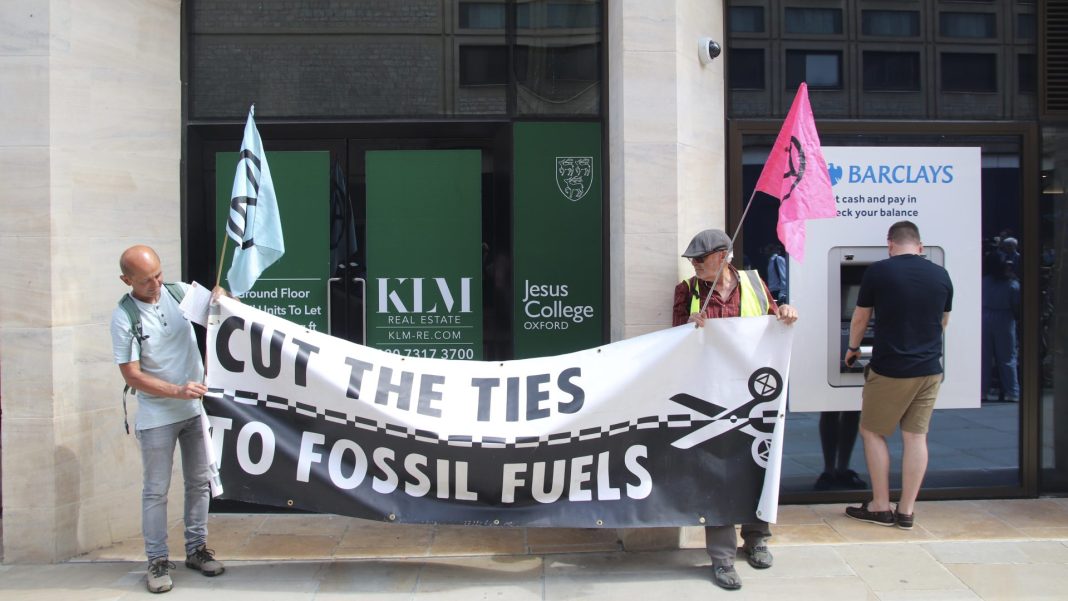Two things to agree on: the killing of civilians should always be abhorred and baking the planet and everything on it is a bad idea. I hope that’s not too woke of me. This doesn’t mean I’m a pacifist by conviction; studying history here at Oxford has taught me the occasional necessity of war. Likewise, having spent my life in the working countryside of North Yorkshire, I’m a sometimes-critical observer of those environmental initiatives which ignore the very real practicalities of food security and sustainable production. But it is impossible not to agree with the basic points of the protests about Gaza and climate change which have characterised our time at Oxford. I wouldn’t want to attend a university whose investments fund the exploitation of our planet and its people, and I would be worried if anyone else did.
And yet I and many others feel conflicted about these protests. The causes which inspired the Radcliffe Square, the Exam Schools, the dramatic (and, let’s be frank, thrilling) scaling of the Radcliffe Camera last Hilary, and now the protests outside a branch of Barclays on Jesus College property are certainly worthy. The difficulty lies in gaining publicity for these causes without alienating the very people whose support is essential to force the University to take action. I don’t agree with all of the rhetoric used by those protesting about the genocide in Gaza, which can certainly be troubling, especially to many of those of a Jewish or Israeli background.
The thing which riles many students the most, however, is the idea of activists who are not from the University staging protests that target Oxford students, sometimes at make-or-break moments in their careers. Like many others, I was shocked when friends of mine came back in tears after their prelims were ruined by the Exam Schools occupation last year. Similarly, I felt annoyed when protesters shouted at me to “go home” as I tried to get into the blockaded Brasenose College. “This is my home”, I thought to myself. Of the 13 arrested for the Rad Cam occupation, only one of them was a current Oxford University student. It’s the idea that these protesters are outsiders who don’t understand (or even care about) our lives and how hard we work that undermines support for their otherwise worthy cause.
But the very fact that outsiders are bothered about what our University does reminds us that Oxford is not beyond the real world of geopolitics, finance, and business. Calls to divest from the oil or arms industries may be disruptive for many, but we cannot expect to be exempted as a special case. Like all major investors, Oxford’s choices impact the world we live in. Unlike many other investors, however, it combines the financial muscle of a £1.3 billion endowment with a global academic and cultural reputation: a position of almost unique influence and authority. Oxford has so often been a role model for other institutions to follow, and it is everyone’s business that this position is used for the good of the whole planet and all people.
The recent Extinction Rebellion and Christian Climate Action protesters were certainly not of the same demographic as the average student. Many of those holding their banners outside the new Barclays branch and calling upon Jesus College to sever connections with the bank (which has been criticised for its investments in fossil fuels and arms manufacturers supplying the Israel Defense Forces) were white-haired and middle-to-older aged. They were outsiders, just like the Rad Cam climbers and the Brasenose blockaders. But in the same way that I wouldn’t expect protests outside the headquarters of a multi-national corporation to include only its employees, we shouldn’t expect that this University, a major public-facing body, will be held to account by only its students.
For a student, to protest is to potentially jeopardise our degrees and futures, so I can understand why undergraduates are not always front and centre of these confrontations and why activists from outside of the University feel the need to fill the gap. I always find it admirable that people of an older generation are campaigning on issues which (in the case of climate change) will only fully impact future generations.
Protests are blunt instruments; they can cause inconvenience or distress. But, when I think of famine-stricken Gaza or parched Tunisia, my own difficulties pale into insignificance. I may not agree with all of their rhetoric and tactics, but I am grateful for those who take up the cause of ensuring that our University is on the right side of today’s most pressing issues. The question of who is protesting shouldn’t be relevant if the cause is just. It is how they protest which must be the issue, for their sake and for ours.


